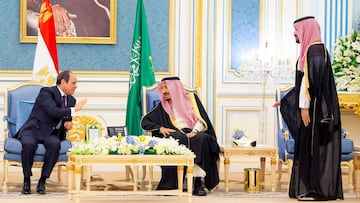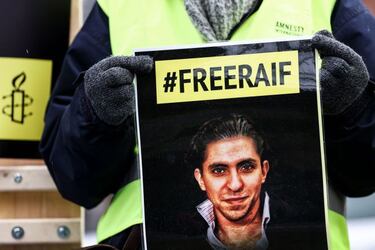Why has the government of Saudi Arabia executed 81 people?
March 12, 2022 marked the largest mass execution in the country for years and has been criticized by human rights groups around the world.


The execution of 81 men in Saudi Arabia in a single day has sent alarm bells ringing for statesmen hoping to court the state for their oil supplies. The huge number dwarves the 67 and 27 executions reported during in the entirety 2021 and 2020 respectively. It had been thought that the Saudi state was on the way to a more liberal outlook, as the infamously repressive state allowed women to drive for the first time amongst other reforms.
The Interior Ministry published the names and crimes of the 81 men, with crimes ranging from “monitoring and targeting officials and expatriates," to "killing police officers, and planting landmines."

Saudi Arabia’s mass execution of 81 men this weekend was a brutal show of its autocratic rule, and a justice system that puts the fairness of their trials and sentencing into serious doubt. The shocking callousness of their treatment is compounded by the fact that many families found out about their loved ones’ deaths just like the rest of us, after the fact and through the media.
Michael Page, deputy Middle East director at Human Rights Watch
The first country that will be appealing to the Saudis over the executions is the United Kingdom, as Prime Minister Boris Johnson will be visiting the country at the weekend.
“We continue to raise human rights issues with other countries including Saudi Arabia. We will be raising Saturday’s executions with the government in Riyadh”, a spokesperson said.
The Saudi regime executed 81 people on Saturday.
— Nadia Whittome MP (@NadiaWhittomeMP) March 15, 2022
Yesterday I asked the government to cancel the Prime Minister's visit to Saudi Arabia and stop selling them weapons. pic.twitter.com/IbuPPdhKFX
But what nations who want to correct Saudi Arabia's actions can practically do is hampered by two facts; the need for Saudi energy supplies at this time, and their own complicity in supporting a regime which is against all of the values their supporters claim to profess.
A renewed focus on Saudi Arabia in wake of Ukraine war
The war has put the Saudis in a very advantageous position. Europe and the US are attempting to wean themselves off of Russian oil, meaning Saudi Arabia and its vast oil reserves are likely to have plenty of new customers. The economic necessity of the energy means their bargaining power with the Saudi regime is reduced.
Related stories
This resumed focus on the Gulf state should bring its role in Yemen under the microscope. The Saudi army has been involved in the civil war since 2015, a war that has left 20.7 million people in need of humanitarian aid and over 100,000 dead. There is a serious famine risk, further exacerbated by the lack of exports from Ukraine, one of the world's biggest food producers.
⚠️Boris Johnson is about to visit Saudi Arabia, which is conducting illegal and inhumane attacks on civilians in #Yemen.
— Declassified UK (@declassifiedUK) March 15, 2022
It couldn't do this without UK support. This is also a British war.
Here's our summary of the UK role. Please retweet. pic.twitter.com/KqUas6Bq33
The Saudi war effort has been characterised by a large number of civilian deaths under airstrikes. In the last eight months alone, more than 2,378 civilians have been reported to be killed in Saudi Arabian airstrikes. But with nations like the UK and US supporting the Saudis through arms sales, there is a complicity with the west over these potential war crimes. Why should Yemen be treated any differently to Ukraine?

